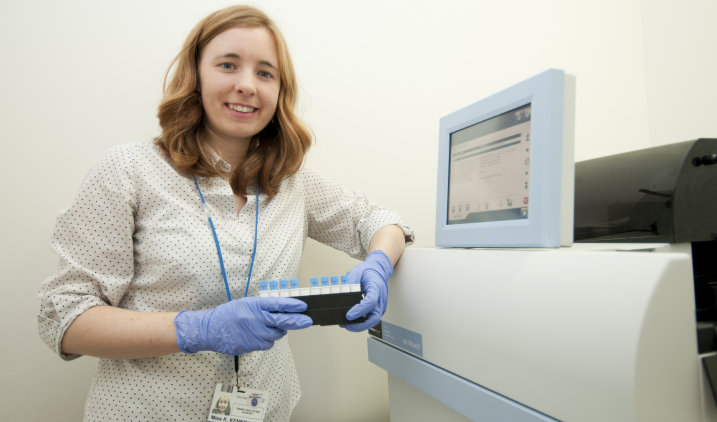Clinical biochemistry
Pathology (the study of disease) includes a number of specialisms, including clinical biochemistry, in which you could help diagnose and manage disease.
In clinical biochemistry, you’ll help to diagnose and manage disease through the analysis of blood, urine and other body fluids.

Working life
In clinical biochemistry, working as a clinical scientist, you’ll help to diagnose and manage disease through the analysis of blood, urine and other body fluids. You’ll do this by producing and validating the results of chemical and biochemical analyses.
You’ll advise clinicians and GPs on the appropriate use of tests, the interpretation of results, and the follow up investigations that may be required. You will usually be based in a hospital clinical biochemistry/chemical pathology laboratory. Increasingly, you’ll work outside the laboratory to support the investigation of patients at the point of care, including in clinics and operating theatres.
The typical work activities that you might undertake include:
- planning and organising work in clinical biochemistry laboratories
- carrying out complex analyses on specimens of body fluids and tissues
- assuring the quality of clinical biochemistry investigations
- auditing the diagnostic and clinical use and performance of investigations
- developing new and existing tests, often automated and computer assisted but sometimes requiring considerable manual expertise
- liaising with clinical and other healthcare staff, often in a multidisciplinary team setting
- some patient contact
- writing reports
- submitting funding bids and conducting research with clinicians
Who will I work with?
You will work in a team that includes pathologists (medical doctors specialising in the study of disease), biomedical scientists, other healthcare science staff working in the life sciences and other clinicians, including GPs.
Want to learn more?
- Find out more about the entry requirements, skills and interests required to enter a career in clinical biochemistry
- Find out more about the training you’ll receive for a career in clinical biochemistry